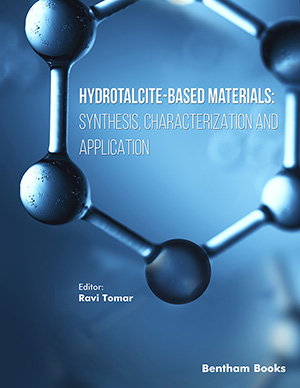
Abstract
Background: The article proposes a new concept explaining nerve conduction information. The conduction is based upon proton hopping, the fastest known chemical reaction. A summary of the proton hopping at several parts of the nerve structure are described.
Methods: The details of each part of the nerve system are described in the article.
Results: A summary of the parts of the nerve structure involving the role of proton hopping, are expressed to give a complete picture of the nerve function and the role of proton hopping.
Conclusion: An overall description of the function of the nerve is described in terms of the role of proton hopping as the mechanism of message passage.
Keywords: Diffusion, ligand, nerve conduction, node of ranvier, proton hopping, synapse.
Current Computer-Aided Drug Design
Title:Proton Hopping as the Nerve Conduction Message
Volume: 12 Issue: 4
Author(s): Lemont B. Kier
Affiliation:
Keywords: Diffusion, ligand, nerve conduction, node of ranvier, proton hopping, synapse.
Abstract: Background: The article proposes a new concept explaining nerve conduction information. The conduction is based upon proton hopping, the fastest known chemical reaction. A summary of the proton hopping at several parts of the nerve structure are described.
Methods: The details of each part of the nerve system are described in the article.
Results: A summary of the parts of the nerve structure involving the role of proton hopping, are expressed to give a complete picture of the nerve function and the role of proton hopping.
Conclusion: An overall description of the function of the nerve is described in terms of the role of proton hopping as the mechanism of message passage.
Export Options
About this article
Cite this article as:
Kier B. Lemont, Proton Hopping as the Nerve Conduction Message, Current Computer-Aided Drug Design 2016; 12 (4) . https://dx.doi.org/10.2174/1573409912666160808092011
| DOI https://dx.doi.org/10.2174/1573409912666160808092011 |
Print ISSN 1573-4099 |
| Publisher Name Bentham Science Publisher |
Online ISSN 1875-6697 |
Call for Papers in Thematic Issues
Artificial Intelligence in Biomedical Research: Enhancing Data Analysis for Drug Discovery and Development
This thematic issue highlights the transformative impact of Artificial Intelligence (AI), with a particular focus on Machine Learning (ML) and Deep Learning (DL) techniques, in advancing biomedical research. As a result of these cutting-edge AI methodologies, drug discovery and development are revolutionizing data analysis. Rapid advances in artificial intelligence technologies ...read more
Computer-Aided Drug Discoveries for Emerging Diseases
Computer-aided drug design is a rapidly growing research field that continues to gain momentum, attracting increasing interest from the scientific community. This trend is largely driven by the growing utilization of machine learning and artificial intelligence in drug design and discovery. Artificial Intelligence has proven efficacy across various applications, including ...read more
Deep Learning Approaches in Bioinformatics for Computer-Aided Drug Development Targeting Brain Tumors
The integration of deep learning and bioinformatics is revolutionizing the field of computer-aided drug development, particularly in the fight against brain tumors one of the most aggressive and lethal types of cancer. Brain tumors present significant challenges due to their heterogeneity and complexity, which require novel approaches for early diagnosis ...read more
Emerging Trends in Computer-Aided Drug and Healthcare Solutions
This special issue aims to further the advancement of knowledge in drug design, healthcare innovations, and medical solutions by leveraging modern computational techniques. In recent years, computer-aided drug design has transformed the approach to medicinal chemistry, accelerating the drug discovery process and fostering innovation. The goal of this issue is ...read more
 58
58 1
1 1
1 1
1
- Author Guidelines
- Graphical Abstracts
- Fabricating and Stating False Information
- Research Misconduct
- Post Publication Discussions and Corrections
- Publishing Ethics and Rectitude
- Increase Visibility of Your Article
- Archiving Policies
- Peer Review Workflow
- Order Your Article Before Print
- Promote Your Article
- Manuscript Transfer Facility
- Editorial Policies
- Allegations from Whistleblowers



























